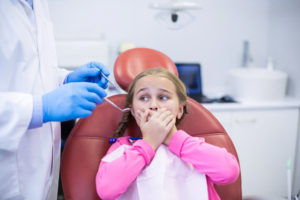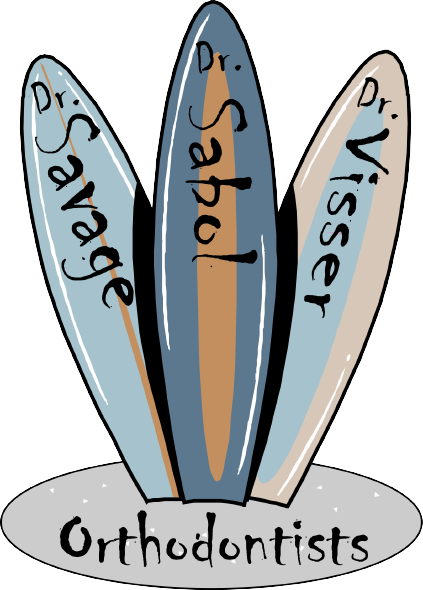Fear of the dentist is a common thing, even among adults. It’s so widespread, there are names for it, like dentophobia, odontophobia and dental anxiety. So it should not be surprising or cause you too much concern if your child exhibits fear or anxiety when a trip to the dentist is mentioned.
In fact, if you’re one of the 30-40 million Americans who fears going to the dentist, there’s a very good chance your children learned their fear from you. While it may be somewhat difficult to overcome dental fear and anxiety as an adult (although it can be done), there are things you can do to make it easier for your children to overcome theirs.
Here are seven tips to help ease your child’s dental fears, and the earlier you’re able to implement them, the better results you’ll get.
- Look for a Pedodontist
A Pedodontist is commonly called a pediatric dentist, and they specialize in dental health for children. These are dentists who attended regular dental school and then chose to take at least two years of additional training.
They learn about managing and treating the developing teeth of children, their behavior, and their growth and physical development, along with the specialized needs of childhood dentistry.
Can a regular dentist treat your child? Yes, of course, any licensed dentist is capable of caring for your child’s oral health needs, but a pediatric dentist visit is entirely geared toward children from the moment they step through the door.
The staff is trained in ways to put children at ease and make them feel comfortable. The office décor is typically kid-friendly, often with decorative themes that appeal to children. The waiting room may be equipped with games, movies, toys and books.
Even the instruments the dentist uses are smaller, specifically designed to better fit little mouths. They’re also equipped to work with special needs children.
- Start Oral Hygiene as Early as Possible
The earlier you can introduce the good habits of proper oral hygiene, the better. Even before your baby has teeth, you can clean the gums with a wet cloth or baby toothbrush after a feeding.
This helps prepare them for cleanings and exams later on, as well as helping them develop good oral hygiene habits early in life.
- Make the First Dental Appointment Before the First Birthday
The American Dental Association suggests you take your child to see the dentist within about 6 months after their first tooth or no later than their first birthday.
Going to the dentist at an early age allows your child to become accustomed to the dentist and may help prevent fear and dental anxiety later on down the road.
The initial visit is typically very brief, and usually, very little treatment is actually performed. It’s mostly a ‘getting acquainted’ session. You may be asked to sit and hold your child in the dental chair. Or, you may be asked to step outside the exam room, allowing the dentist and your child to begin bonding and building a trusting relationship.
You may want to consider dropping by the office even before the appointment, just so your child can see the office, and meet the dentist and the staff in a very non-threatening situation.
- Talk to Your Child About the Appointment
It’s important to give your children the opportunity to express any feelings they may be experiencing. You can help to open up the conversation by reading a book together about visiting the dentist.
Help them understand what may happen at the appointment in a language they can easily understand. Try to avoid talking about pain or being uncomfortable. The more positive and calm you are about it, the easier it will be for them to remain calm and stay positive.
This is a good time to make them aware of why brushing their teeth is so important. They need to understand why they should do everything they can to keep their gums and teeth healthy. Then you can explain the dentist is the friendly “mouth” doctor who helps them do that.
- Pretend You’re the Dentist
Acting out some of the things your child may encounter at the dentist office can go a long way in helping alleviate fear and anxiety.
Use a toothbrush to count their teeth and gently poke and prod a bit around their mouth. Using a mini-flashlight, pull their cheek out a bit so you can see inside. If possible, let the child watch you in the mirror.
Depending on the age of your child, you may want to swap roles, where you become the patient and your child plays the dentist.
- Practice Being at the Dentist
If you have a recliner, pretend you’re at the dentist office and have your child sit in the recliner, just as if it were the dentist chair. Talk about the “rocket ship position” like the astronauts have to do, lying down in their chairs just before takeoff.
Let your child know when you’re going to recline the chair. Then spend a few minutes talking about how important it is to take good care of your teeth and keep them healthy. Once your child has laid there a few minutes, comfortable and relaxed, you can choose to return the recliner to the upright position.
Even with tactics such as this, children may still be anxious about going to the dentist. Sometimes it’s because they don’t really know exactly what to expect when they get there. The more you can help them be prepared, the better chance you have for good results.
- Make the Actual Experience As Comfortable As Possible
When appointment day arrives, you may find it helpful to let your child carry something favorite and familiar into the office. Sometimes a favorite toy, book, or stuffed animal gives them a source of comfort and familiarity.
Making the appointment fun and happy and as comfortable as possible gives you the best chance for a positive outcome and can help your child feel less fear and anxiety when it’s time for the next appointment.













